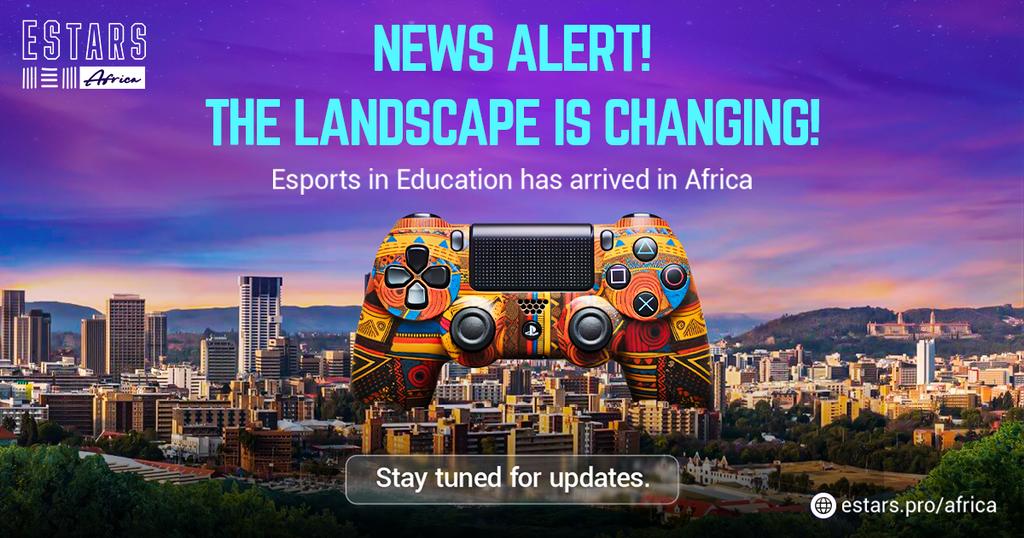As esports gains prominence not only in Africa but worldwide, there is a notable increase in prize pools, player salaries, and dedicated facilities. As the industry evolves, there is growing interest in exploring the broader impacts of esports, including its potential contributions to various aspects of our lives. Education stands out as a sector where esports could play a significant role in enhancing student performance. Particularly in STEM (Science, Technology, Engineering, and Mathematics) education, esports integration is becoming evident. In my home country of Ghana, esports has been actively included in events such as STEAMFest in 2022. Additionally, a noteworthy collaboration has emerged between EStars, a distinguished educational esports firm headquartered in Abu Dhabi, and Chrisland Schools, a prestigious private school in Nigeria, reflecting the expanding reach of esports in education.
EStars’ Educational Esports Club represents a significant stride in merging esports with the realm of education. According to the organisation’s website, the club aims to transform esports into an educational tool, enabling students to develop crucial skills while enjoying their favourite games. The platform, designed to seamlessly blend gaming and education, accommodates all skill levels, fostering a vibrant community of passionate gamers. EStars emphasises that its environment is both safe and structured, providing a nurturing space for children to explore their gaming interests while simultaneously promoting academic and personal growth.
EStars highlights the efficacy of its Esports Club in enhancing student skills through educational gaming. The platform’s success in seamlessly integrating gaming into the learning process is underscored, particularly in its collaboration with Chrisland Schools in Nigeria. Since the partnership commenced in 2023, an impressive 85% student engagement rate has been observed, further validating the positive impact of the programme.
In a significant stride towards the integration of education and esports, Bett, the renowned educational technology (EdTech) event organiser, is set to showcase esports in its 2024 event at ExCeL London from January 24-26. This marks the third consecutive year that esports have been included in Bett’s activities. Bjorn Sirum, Head of Product at Bett, expressed his excitement, stating, “We’re so excited to be welcoming Esports @ Bett back to the show for the third year in a row, in partnership with the British Esports Federation and our technology partners, Acer and Dell!”
Sirum further emphasised the transformative potential of esports in education, noting, “Esports is such an innovative way to use technology in the classroom. It can offer a platform for students to pursue passion, competition, and develop future skills, much like traditional sports. Join us on January 24th–26th for a packed schedule of exciting content, live gaming, and case studies from across the world.”
Backing this sentiment, Mia Sutherland, Senior Client Engagement Executive at Bett, remarked, “Bett is always looking for new ways to show our audience the role technology has in the classroom and how we can aspire for better education outcomes for all learners through the use of emerging technology. Esports is an excellent example of this, and we’re excited to be welcoming the feature back for its third year. Esports in education is a method to engage students who might not be catered for by traditional subjects and activities. Esports can offer a platform for students to pursue passion, competition, and excellence, much like traditional sports.”
It looks like esports and education are going to be intertwined in increasingly innovative ways. As technology continues to advance and the popularity of esports grows, educators are recognising the potential for incorporating gaming elements into the learning environment. The intersection of esports and education has the potential to enhance student engagement, critical thinking skills, and teamwork. Educational institutions are exploring the integration of esports-related curricula, creating programmes that not only cater to the interests of students but also provide them with valuable skills applicable to today’s digital landscape. Furthermore, the rise of esports scholarships and competitive gaming leagues at the collegiate level further solidifies the connection between gaming and education, offering students opportunities to pursue their passion for esports while earning a formal education. As this relationship evolves, it opens up new avenues for collaboration between the gaming industry and educational institutions, fostering a dynamic synergy that could redefine traditional approaches to learning and skill development.

